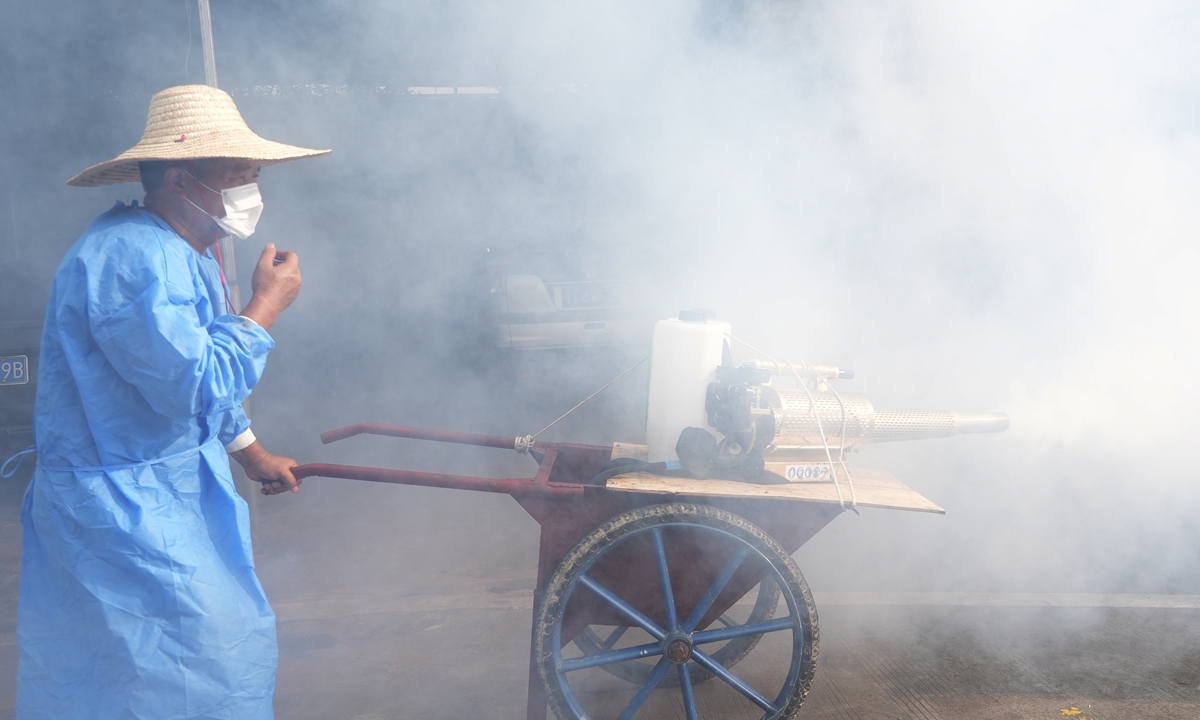Local authorities in Foshan in South China’s Guangdong Province continue mosquito eradication efforts to control the chikungunya outbreak on July 29, 2025. Photo: VCG
South China’s Guangdong Province has preliminarily brought its Chikungunya fever outbreak under control with 1,387 new cases reported over the past seven days, the Yangcheng Evening News reported on Sunday, down from close to 3,000 weekly new cases in previous two weeks.
The local infectious disease prevention and control authority said that the rapid rise in cases in Foshan, the core area of the outbreak, has been preliminarily curbed, and recent prevention and control gains have been further consolidated, said the report, citing Kang Min, director of the Institute for Prevention and Control of Infectious Diseases at the Guangdong Provincial Center for Disease Control and Prevention (Guangdong CDC).
These new cases were mainly distributed across the province with 1,212 cases in Foshan, 103 cases in Guangzhou, 39 cases in Zhanjiang, according to the Guangdong CDC.
On Saturday, Foshan officials said at a press conference that the containment efforts have achieved initial results, the Yangcheng Evening News reported.
Wen Xi, a vice mayor of Foshan, said the daily number of new Chikungunya fever cases reported in the city fell to 148 cases on Friday, compared with 647 cases detected on July 19, the peak day. The number reported in the city has shown a steady decline since July 29, with the daily number of new cases reducing to below 200 over the past five consecutive days.
According to Kang, the mosquito density has significantly decreased and the transmission risk has been contained in the city thanks to multiple rounds of breeding site clearance and intensified mosquito control in affected areas, mosquito density in most outbreak-related villages and communities has noticeably dropped, greatly reducing the risk of community transmission.
However, since Chikungunya fever also has an incubation period, the effects of mosquito-control measures are not immediate and usually take one to two weeks to become apparent, prevention and control measures remain the most important to consolidate the results, Zhuang Shilihe, a Guangzhou-based medical expert, told the Global Times on Sunday.
Besides, while previous control measures have proven effective, as shown by declining case numbers, Guangdong’s long summer season and likely new water accumulation from typhoons mean the situation remains serious. Current measures must be maintained without complacency, and areas outside Foshan should also remain vigilant, Zhuang said.
